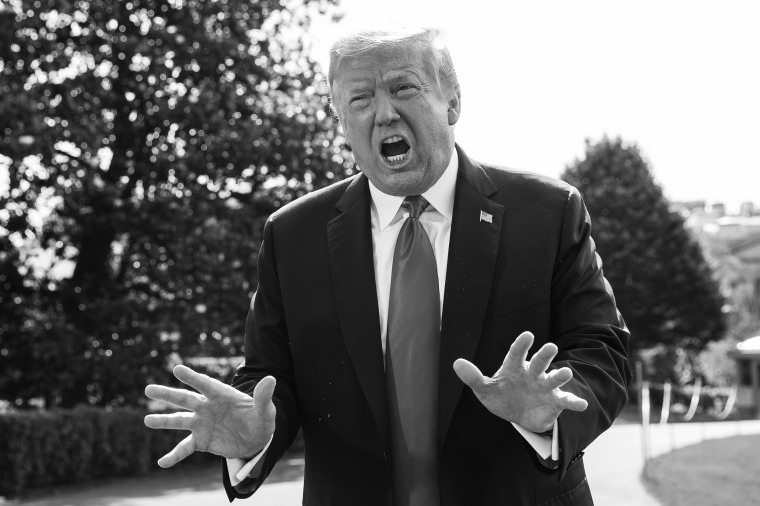On Feb. 28, as the coronavirus threat to the United States was just starting to come into focus, Donald Trump assured the public that there was no cause for alarm. "It's going to disappear," the president said. "One day, it's like a miracle, it will disappear."
It was a line that led to quite a bit of ridicule, which should've taught Trump a lesson. But more than four months later, his rhetoric remains effectively unchanged.
"I think we're going to be very good with the coronavirus. I think that at some point that's going to sort of just disappear, I hope," Trump said in an interview with Fox Business Network. When asked if he "still" believed the virus would "disappear" at some point as he had suggested earlier in the year when the pandemic first hit the U.S, Trump said, "I do."
I especially enjoyed seeing Fox Business' Blake Burman try to give the president a hand during the interview, offering Trump a chance to walk back, or at least add some caveats to, his assertion that the viral threat would "sort of just disappear." Burman specifically asked, "You still believe so? Disappear?"
Burman didn't literally say, "Are you sure that's the line you want to say right now?" but that seemed to be the subtext. The president nevertheless stuck to his position -- the same one he's repeated incessantly, even in the face of tragic developments.
Soon after, during a press briefing, a reporter asked White House Press Secretary Kayleigh McEnany an excellent question. After noting Trump's "sort of just disappear" comments, the reporter asked, "Is hoping that it will disappear the president's strategy at this point?"
McEnany replied, "No, the president's confident that it will disappear."
Oh. Well, now I feel better. Trump isn't just hoping the coronavirus will disappear; he's actually confident it'll disappear. In that case, we can all rest easy.
This question from the briefing struck me as especially notable because it touched on one of the White House's principal problems: there is no strategy. There is no plan. There is no blueprint for success. There's only a confused amateur in the Oval Office, watching television, peddling happy talk, and waiting for things to get better on their own.
In October 1993, there was an episode of The Simpsons in which Homer had to go to college and take Nuclear Physics 101. As the final exam approached, Homer, not surprisingly, was unprepared for the test and reluctant to study.
Asked what he intended to do about the test, Homer said, "Actually, I've been working on a plan: during the exam, I'll hide under some coats, and hope that somehow everything will work out."
In a comedy, the attitude was funny. In a White House during a deadly pandemic, it's not.
For what it's worth, in the 1993 episode, Homer flunks the course, but his nerdy friends in the class hack the school's computer system and change his grade. When Marge learns of the fraud, she tells Homer he has to re-take the class in order to set a good example for the kids.
In our world, however, there are no do-overs for failures of Trump's magnitude.

